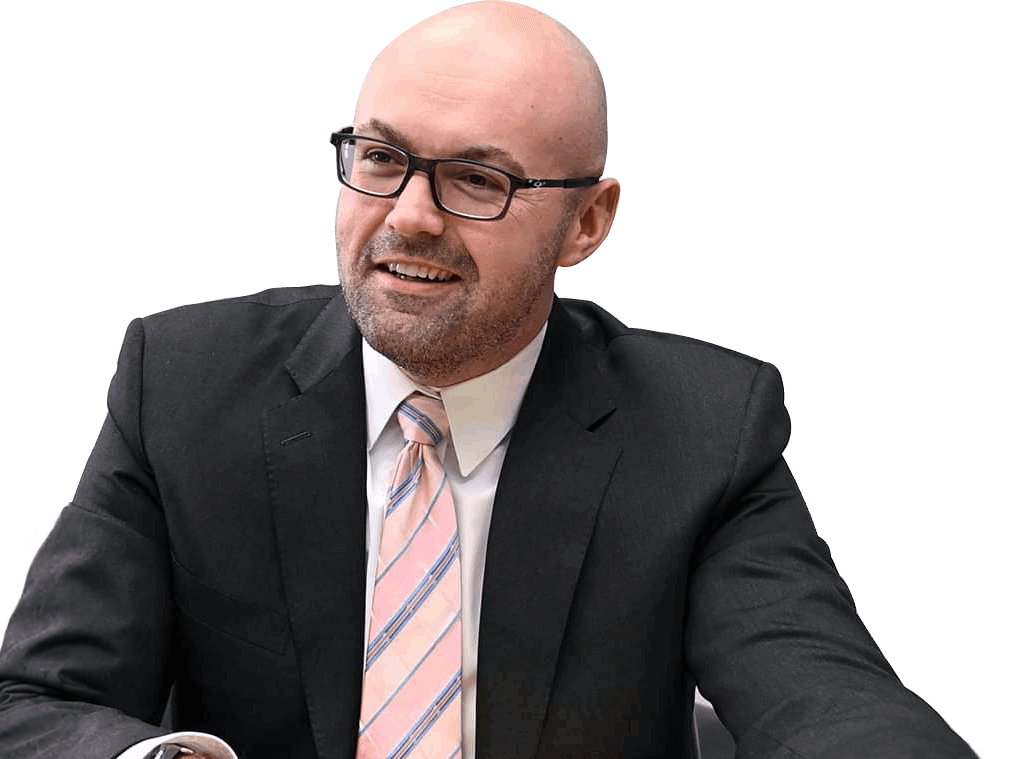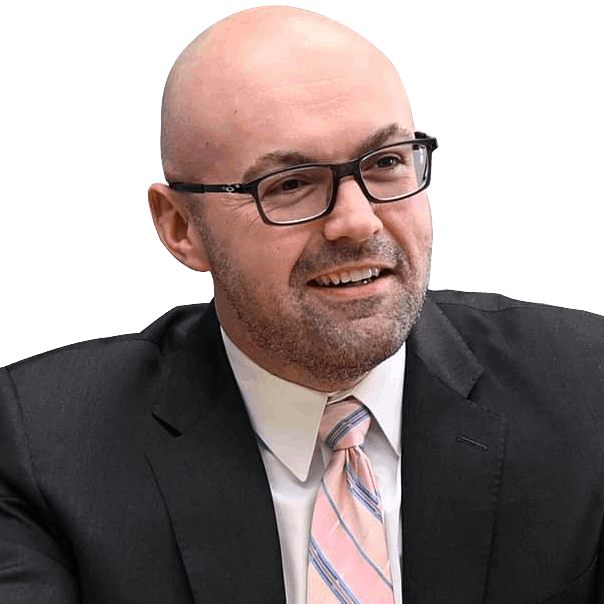Located in the heart of Morgan County, Jacksonville, Illinois, is known for its historic charm, educational institutions, and close-knit community. Despite its tranquil atmosphere, even small-town hospitals can fall short in delivering the medical care patients deserve. Hospital negligence in Jacksonville, IL, can result in severe and lasting consequences, whether from surgical errors, delayed diagnoses, or preventable infections.
At Chicago Injury Lawyer, we bring legal strength and personalized attention to residents of Jacksonville and the surrounding areas who’ve suffered at the hands of negligent medical institutions. Our mission is to help victims pursue justice while holding hospitals accountable for the harm they cause.
Call us now at 312-261-5656 for a free, no-obligation consultation, available 24/7. With our no-fee-unless-we-win policy, you can focus on your recovery while we handle the rest.
What Is Considered Hospital Negligence in Jacksonville?
Hospital negligence involves a breach of duty by healthcare providers or the facility itself that leads to patient harm. This breach could result from careless staff behavior, insufficient protocols, or systemic failures within the hospital. In Jacksonville, these errors are especially tragic given the reliance on local medical services and the limited availability of specialists nearby.
Some frequent examples of hospital negligence include:
- Failure to diagnose life-threatening conditions like heart attacks, cancer, or internal bleeding
- Surgical errors, including wrong-site operations or injuries from poor technique
- Medication errors, such as incorrect prescriptions or overlooked drug allergies
- Improper patient discharge, leading to complications or hospital readmission
- Infections contracted during hospitalization due to unhygienic practices
Each of these mistakes can inflict serious injury or even death. Our legal team evaluates the full context of your care to identify all forms of negligence.
Specific Risk Factors in Jacksonville Healthcare Settings
While Jacksonville offers several local and regional care centers, many hospitals in Central Illinois face shared limitations that raise the risk of patient injury. These include:
- Understaffing and overburdened emergency rooms, particularly during flu season or local crises
- Use of agency nurses or rotating personnel unfamiliar with facility routines
- Budgetary constraints that limit equipment upgrades and medical staff training
- Limited access to specialists, resulting in delayed consultations or mismanagement
Smaller hospitals and clinics may lack the robust oversight and quality controls seen in larger metropolitan facilities. However, they are still legally obligated to maintain patient safety standards. Our firm investigates both individual misconduct and systemic weaknesses when building your claim.
Examples of Injuries Caused by Hospital Negligence in Jacksonville
Medical negligence in Jacksonville can lead to a wide range of serious injuries. Common consequences include:
- Brain injuries from anesthesia errors or prolonged oxygen deprivation
- Spinal cord damage from improper patient handling or missed diagnoses
- Birth trauma, including brachial plexus injuries or hypoxic-ischaemic encephalopathy
- Loss of limb due toan untreated infection or vascular error
- Sepsis and organ failure stemming from hospital-acquired infections
- Permanent disability requiring ongoing rehabilitation or in-home care
The physical, emotional, and financial impact of these injuries can be overwhelming. We work with medical experts, vocational rehabilitation specialists, and life-care planners to quantify the long-term needs of our clients.
Legal Rights and Timeline for Filing in Jacksonville
Under Illinois law, victims have two years from the date of discovery of their injury to file a medical malpractice claim. In cases where the injury is not immediately apparent, such as internal injuries or missed diagnoses, this window may be extended. However, Illinois enforces a strict statute of repose: no case can be filed more than four years after the negligent act occurred, regardless of when it was discovered.
Our legal process typically includes:
- Obtaining full hospital records and provider notes
- Identifying all liable parties, including the hospital, attending doctors, and contracted providers
- Interviewing witnesses and securing expert testimony on breach of the standard of care
- Calculating damages, including medical costs, lost income, and emotional distress
- Filing and litigating your case in Morgan County Circuit Court
We handle every step of the claim with precision and compassion.
For a free legal consultation, call 312-261-5656What to Do If You Suspect Hospital Negligence
When medical care in Jacksonville goes wrong, prompt action can make all the difference. If you believe negligence has occurred:
- Secure a complete copy of your medical records, including diagnostic tests and physician notes
- Document your symptoms, medications, and all communications with the medical team
- Get a second opinion if your condition worsens unexpectedly
- File a complaint with the Illinois Department of Public Health or hospital administration
- Speak to an experienced hospital malpractice attorney as soon as possible
Quick intervention helps preserve critical evidence and strengthens your legal position.
Why Choose Our Jacksonville Medical Malpractice Lawyers
At Chicago Injury Lawyer, we combine deep experience with personalized representation. Our firm offers Jacksonville clients:
- Specialized focus in hospital negligence and complex malpractice claims
- Decades of proven results across Illinois courts
- Access to leading medical experts for analysis and testimony
- Full-service case management, including negotiation and trial preparation
- No upfront legal fees, with payment only if we win your case
We don’t back down from hospitals or insurers. We pursue your case with diligence, professionalism, and compassion.
EXCELLENTTrustindex verifies that the original source of the review is Google. I can't stress enough how grateful I am that we hired Paul Marriett to help us with our case. His communication was not only timely and thorough but also understandable. He did a phenomenal job guiding us through the process and preparing us for the courtroom, which put our minds at ease. Once our hearing came, he did his job flawlessly and won our case. Additionally, he was quite pleasant to speak with when our judge was behind schedule and while the court was in recess. I highly recommend him to anyone needing an attorney and will reach out again in the future should we ever need representation.Trustindex verifies that the original source of the review is Google. Very professional and helpful! I would recommend to all my friends and family to hire him. He was eager to know the circumstances of my case even before I hired him. I did contact other lawyers and offices, but none came close to the comfort I felt while talking to Mr. Marriertt, I really felt like he cared about the situation I found myself in. He deserves 6 stars for going above and beyondTrustindex verifies that the original source of the review is Google. Paul helped me out with a traffic citation. The communication was great as he walked me through my options and what to expect with my court date and plea deal. 10/10 service. Highly recommended. Thanks again, Paul.Trustindex verifies that the original source of the review is Google. Paul was very professional, sharp dressed and clearly a notch above most in the courtroom. He understood my plight and refused to be bullied. Knows the law to a T....I'm keeping him on speed dial. I think u will trust him too.Trustindex verifies that the original source of the review is Google. BEYOND satisfied with the services & representation! The communication & efforts have been above & BEYOND! Amazing price as well for a minor traffic hiccup. 11/10 recommend & prefer this firm for any future occurrences!!! Very transparent, & puts in the effort to help you!!!Trustindex verifies that the original source of the review is Google. If you are needing a lawyer in Rockford or the surrounding areas this is the guy you need to get ahold of! Do not waste your time or money going to someone else.... From the very start Mr. Marriett was on top of his job. I called several lawyers before him and he was the first to thoroughly explain everything I needed to hear without even asking him to. The definition of a great lawyer. Each time we went to court he always let me know ahead of time either in person or via phone what the expectations or options would be going in. I highly recommend Paul Marriett if you are in need of a lawyer!Trustindex verifies that the original source of the review is Google. Explained everything well. Kept us informed. I'm glad we found him.Trustindex verifies that the original source of the review is Google. I am very late on sharing my feedback only because I’m google illiterate. Attorney Merriett did a very smart excellent job for me and not real expensive considering how stupid I was to get in trouble . Thank you! For all your professionalism! Bruce P.Trustindex verifies that the original source of the review is Google. Great service and a reliable lawyer. I'm glad we got him instead of getting anyone else. :)
Get Directions to Our Law Office
Visit us in Chicago for a free consultation
- Address: 101 N Wacker Drive, Suite 100B, Chicago, IL 60606 Get Directions
- Driving Directions: If you’re traveling from The Loop, head north on Wacker Drive. Our office is between Lake and Randolph Streets, easily accessible from I-90 and I-94.
- Parking Options: Convenient parking is available at nearby garages, such as the Wacker & Monroe Garage, and there are metered spaces along N Wacker Drive.
- Landmarks Nearby: Our office is just steps from the Chicago Riverwalk and close to The Loop, making it a convenient location for visitors.
Contact Us
Chicago Injury Lawyers
101 N Wacker Drive, Suite 100B
Chicago, IL 60606
Phone: (312) 261-5656
Email: contact@chicagoinjurylawyer.com
Hours: 24/7
Frequently Asked Questions – Jacksonville Hospital Negligence
How much time do I have to file a claim in Illinois?
Typically, two years from the date you discover the injury. Always speak with an attorney promptly to confirm deadlines specific to your case.
Can I include emotional distress in my damages?
Yes. In addition to physical injuries, courts recognize the toll of emotional pain, anxiety, PTSD, and loss of quality of life.
Is the hospital always responsible, or just the doctors?
Both can be held liable. Hospitals may be accountable for the actions of staff, lack of proper training, or institutional policies that led to your harm.
What if I signed a consent form?
Consent forms do not waive your rights in cases of negligence or malpractice. They explain risks, but they do not permit substandard care.
What if the negligent care happened to my child?
Minors have special protections under Illinois law. In most cases, the statute of limitations does not begin until the child turns 18.



